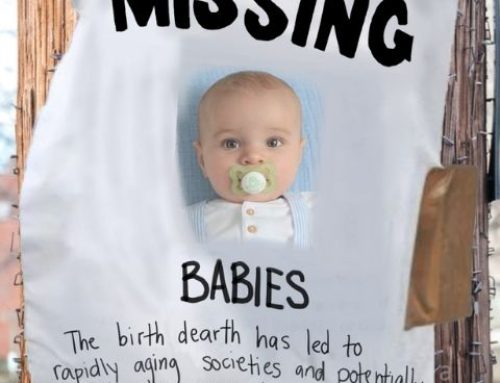 A new drug regimen could displace the single-minded promotion of condoms, which has dominated HIV/AIDS prevention efforts for the past three decades. Pre-exposure prophylaxis (PrEP) consists of daily doses of two antiretroviral drugs taken by people who are not currently infected with HIV.
A new drug regimen could displace the single-minded promotion of condoms, which has dominated HIV/AIDS prevention efforts for the past three decades. Pre-exposure prophylaxis (PrEP) consists of daily doses of two antiretroviral drugs taken by people who are not currently infected with HIV.
PrEP has several implications for the pro-life and pro-family movement. First, it would seem a boon in general to HIV-discordant married couples (where one spouse is infected with HIV and the other is not) who wish to prevent HIV transmission while preserving marital intimacy against the problematic disruption by condoms. Second, fewer HIV-discordant couples who wish to conceive might resort to artificial reproductive technology. Third, the reception of PrEP highlights some tensions within gay culture.
The combination of tenofovir and emtricitabine (TDF/FTC), under the brand name Truvada, was first licensed in 2004 as therapy for existing HIV infections. In July 2012 the U.S. Food and Drug Administration approved the combination for the new indication of reducing the risk of sexually acquired HIV‑1 infection in adults who are at high risk. The manufacturer, Gilead Sciences, has not sought approval of PrEP from Health Canada, though some Canadians are using it “off-label” for this purpose.
Antiretroviral therapy (ARV) works by interfering with the replication of viruses by HIV-infected cells. An HIV-positive mother who uses ARV during her pregnancy may prevent transmission of HIV to her unborn child.
Four randomized clinical trials of PrEP have been conducted with heterosexually active adults. The divergent results depend greatly on whether participants actually took the drug every day as scheduled.
Interim guidance issued by the U.S. Centers for Disease Control and Prevention (CDC) in August 2012 says PrEP should not be used by persons whose HIV status is unknown. Refraining as usual from commentary on the morality of sexual acts, the CDC recommends continuing access to condoms.
PrEP is well tolerated. The most common serious adverse events involve kidney problems. Animal studies suggest no impairment of fertility. Data are incomplete about risks from use during pregnancy or breastfeeding.
To some observers’ surprise, PrEP has not been promoted by direct-to-consumer marketing (which is widespread for pharmaceuticals in the U.S. but prohibited in Canada and most other countries). Meanwhile Gilead has recently initiated free HIV testing and ARV treatment in the Catholic Diocese of Shinyanga in Tanzania.
The list price of Truvada is around $850 per month. Drug plans typically access it at substantial discount, and a further drop in the price can be anticipated.
One might imagine that an effective “vaccine” that demanded no adjustment to a culture of hedonism would be readily taken up within the gay mainstream. Yet in 2012 fewer than 1300 prescriptions for PrEP were filled. AIDS activists have been among PrEP’s fiercest critics, arguing that drug-resistant strains of HIV might emerge from haphazard use.
When used as directed, PrEP provides protection upwards of 99 per cent to men who have sex with men, according to the lead researcher of one trial. Protection may be 86 per cent for condoms when used as directed during anal sex, but it is well known that condoms may break, and as ARV has become cheaper and more effective, those gay men who practise anal sex have become less consistent in their use of condoms. Either as a momentary slip in the heat of passion or as a calculated risk, more and more men are going condomless during anal sex, a practice known as “barebacking.”
The “harm reduction” mentality says we know some people are going to do dangerous things, so we might as well go along with them for the sake of reducing the damage. For instance, clean needles are distributed to heroin addicts to prevent the spread of disease. But helping people to shoot up does nothing to lead them to recovery from dependency and has been soundly criticized as complicit in the grave evil of drug abuse and therefore unacceptable.
Moreover, the phenomenon of risk compensation may leave no net benefit from harm reduction, as Dr. Edward C. Green, a senior research scientist at the Harvard School of Public Health, explained after Pope Benedict XVI remarked in 2009 that condom distribution wasn’t helping Africa. The HIV information centre CATIE warns that “people may feel a false sense of security when using PrEP and decide to engage in more risky activities.” As well, PrEP does nothing to prevent other sexually transmitted diseases such as syphilis. Men who have sex with men now account for some 75 per cent of syphilis cases in the U.S.
Beyond the physical hazards, of course, are the moral evils unaddressed by any technological fix. Any sexual activity outside marriage violates the natural meaning and purpose of our bodies, so a higher goal than “safer sex” is called for. Considering the deep spiritual bondage out of which some people have been led, we hardly dare regard anyone as incapable of reforming their behaviour. But harm reduction implies such a counsel of despair.
In its own tragically distorted way, barebacking reflects the human longing for intimacy, a longing that can never be satisfied by unchaste encounters. Surely, for some people the availability of PrEP will further enable promiscuity unrestrained by even a minimal concern about their sexual partners as persons with an inalienable dignity. Yet for others, PrEP could allow marital relations with a tolerable level of safety.
Alan Yoshioka, PhD, is an editor and writer whose business, AY’s Edit, specializes in medical research reports. Formerly a pioneering gay activist, he now speaks publicly with his wife, Theresa, about pastoral care for persons affected by same-sex attraction.




